SLUDGE fundraiser educates residents
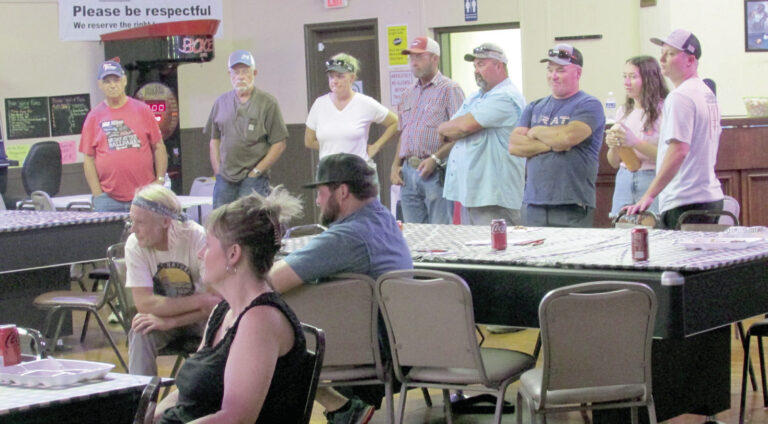
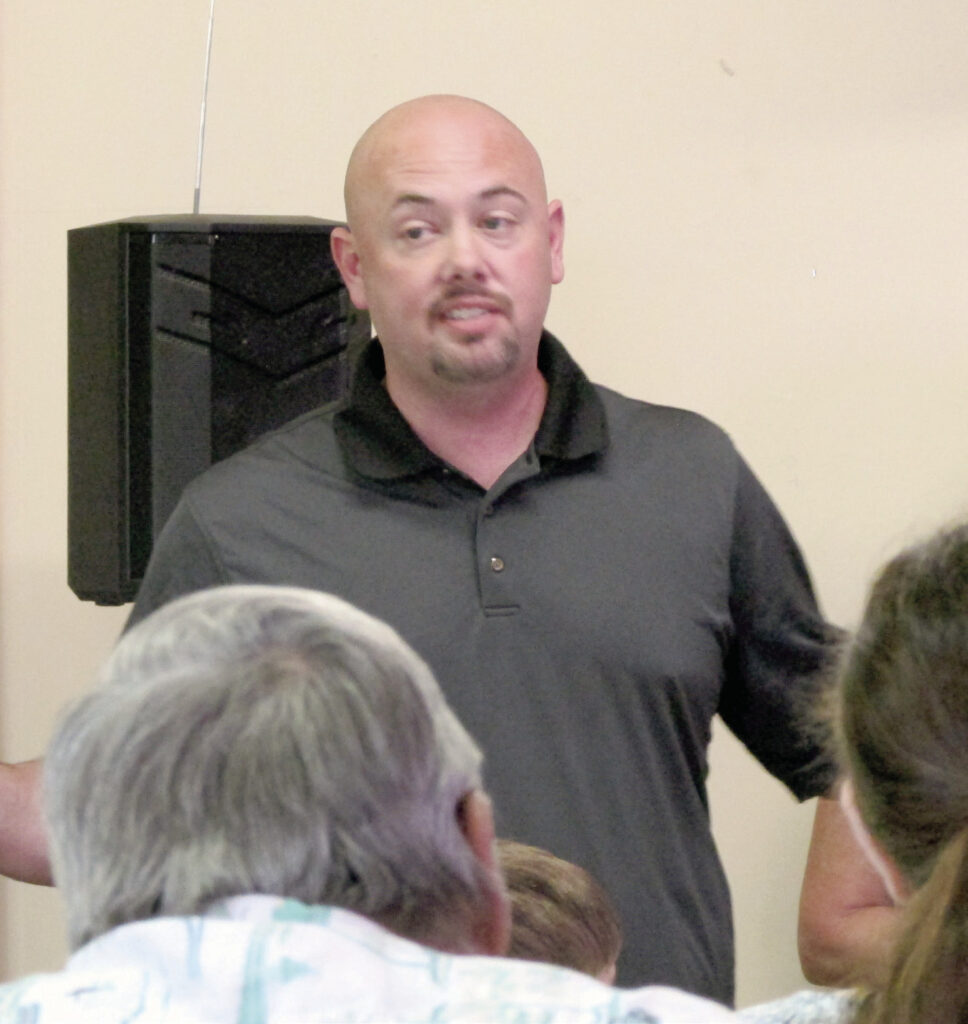
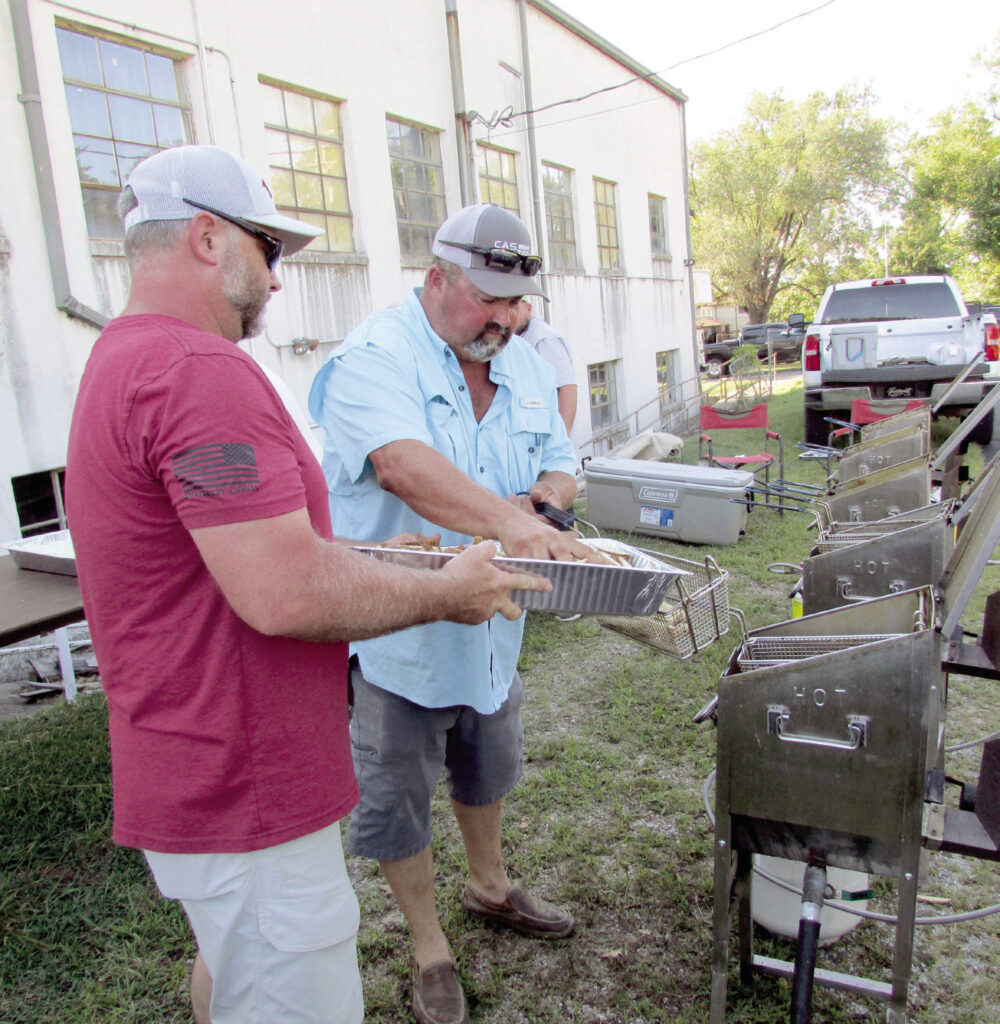
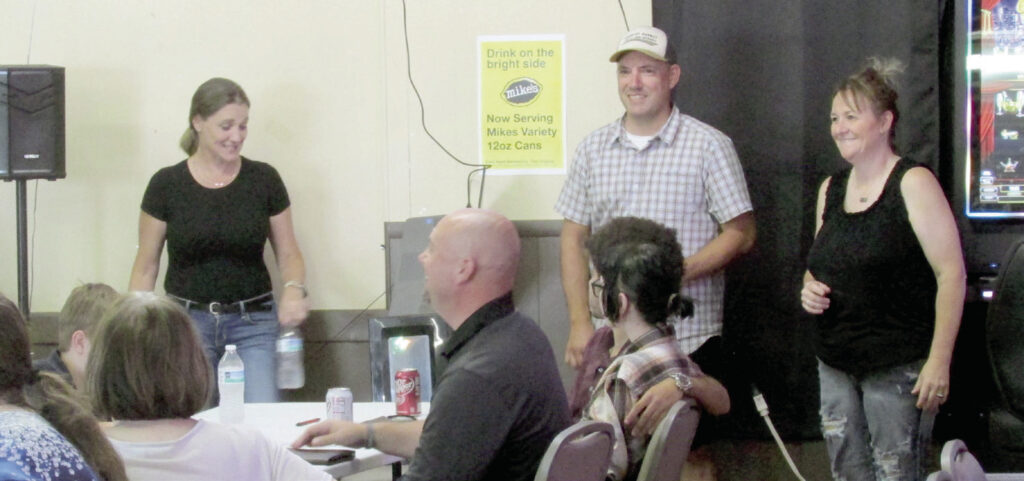
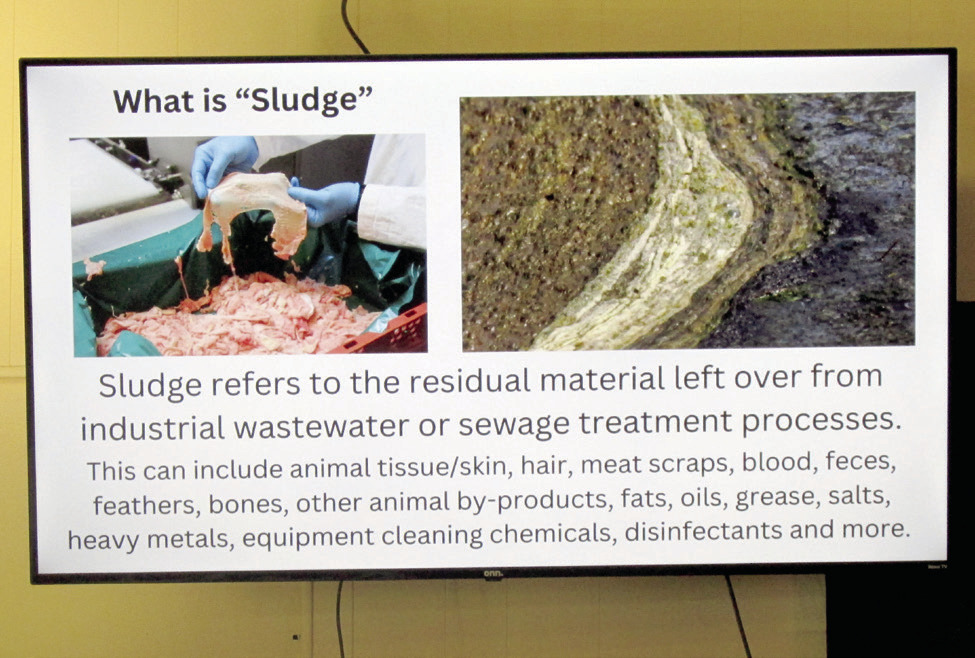
BY SHEILA HARRIS sheilaharrisads@gmail.com
About 100 area residents — the majority of them farmers — attended a fundraiser and informational event at H&H Pool Hall in Cassville Saturday night, where the prospective contamination of soil and groundwater from the land-application of industrial meat-processing and human sludge was the central theme.
Two waste-hauling companies, Synagro Central and HydroAg Environmental, have more than 150 proposed permits pending with the Department of Natural Resources (DNR) to land-apply processing waste to almost 10,000 acres in Barry County. About 1,500 of those acres will be the recipient of human municipal biosolids from cities in Arkansas.
Saturday night’s event shed light on the pending permits, as well as on a lawsuit against the Missouri Department of Natural Resources (DNR), filed by SLUDGE, LLC, the host for the event. SLUDGE’s suit alleges that, by allowing the land-application of sludge, the DNR is not enforcing Missouri’s Solid Waste Law. SLUDGE committee members Vallerie Steele, Adam Perriman and Korrie Bateman welcomed guests.
Guest speaker William Wymore, of Owensville, an insider with know-how of poultry-processing’s wastewater treatment, said the waste management companies seeking to apply sludge to Missouri farmland are billion- dollar industries who, in spite of their claims to be salvaging nutrients from landfills, are ignoring the rest of the story.
“They’re re-distributing contaminants across the land, where they can leach into our food and water supplies,” Wymore alleged. “In order to conform to the federal Clean Water Law, contaminants have to be removed from wastewater, before the water can be released back into the environment. Those contaminants are what’s in the sludge being land-applied in southwest Missouri.”
Wymore said in the wastewater process, chemical coagulants are added to facilitate the separation of liquids and solids.
The “cleaned” water is released, said Wymore, while the contaminants, including the chemicals, remain in the sludge left behind.
With tighter federal regulations for wastewater treatment pending, more sludge will be produced, states an Environmental Assessment conducted by the Environmental Protection Agency (EPA).
“The sludge undergoes zero pathogen-reduction before being land-applied, which means that it’s ‘Class C’ waste, and carries a higher risk of contributing to environmental problems,” Wymore said.
Wymore raised specters of the Avian flu, currently spreading among dairy herds in the U.S.
“No mention is being made among disease experts of a possible connection between the land-application of sludge and the avian flu,” he said. “But, look at the fields where it’s being applied. Vultures and other wild birds – known carriers of bird flu – congregate and poop on those fields, then cattle graze on them.
“We have wild bird migration season coming up; birds will not only be landing in fields where sludge has been land-applied, but they will also be landing in Denali’s lagoons (in Newton and McDonald Counties) where sludge still remains.”
Although, per new regulations recently signed into law by Gov. Mike Parson, Denali will no longer be allowed to operate the lagoons, the process of emptying them is ongoing. Wymore said the sludgy lagoons will be attractive to migrating geese, ducks and other birds.
Wymore alleges that an increase in Chronic Wasting Disease (CWD) in Missouri could also be the result of the land-application of meat-processing waste to the habitats of deer and other wild animals.
“Nobody’s talking about it, though,” he said.
Why? Because the waste-management business is a billion-dollar industry, Wymore said.
“We have lobbyists from these companies in Jefferson City influencing our politicians,” he said.
The land-application of human biosolids is of particular concern, Wymore added, because biosolids typically have a higher PFAS content than meat-processing waste.
Scientific studies are increasingly warning about the PFAS chemicals found in biosolid fertilizers, states a recent article published in The Missouri Independent (https:// tinyurl.com/yb9eue8u) “PFAS — short for perand polyfluoroalkyl substances, also called “forever chemicals” — can be found in many water- and heat-resistant products, personal hygiene materials, medication and industrial waste,” the article said.
New enforceable limits for PFAS have been established by the Environmental Protection Agency (EPA) for drinking water, with states, including Missouri, following suit.
“Because humans are exposed to more PFAS than animals, human waste typically contains more PFAS than meat-processing sludge,” Wymore said.
According to the Missouri Independent article, Synagro (a company with pending land-application permits for Barry County) spreads most of the biosolid fertilizer in Oklahoma and across the country.
“Synagro has lobbied against new regulations over ‘forever chemicals’ in its fertilizer, even as it faces lawsuits from farmers claiming its product has devalued their land and created numerous health problems,” the article said.
“Biosolids are a nutrient- rich end-product of the wastewater solids treatment process that have been treated to ensure safe use in agricultural land application,’” Synagro said, in a statement.
Recent studies, however, indicate that PFAS exposure through biosolids impact the air, soil and water. The Missouri Independent article cites three examples:
• “UCLA researchers found that microplastics in biosolid fertilizer are highly suitable to wind, ‘thereby increasing … inhalation health risks,’ such as lung tissue damage, according to a study published in January.” (https://tinyurl.com/3rkfy7bu) • “Groundwater near biosolid fertilizer-applied fields often have elevated rates of PFAS, sometimes at higher rates than what is deemed suitable for human consumption, according to a 2024 study published by the American Chemical Society.” (https://tinyurl. com/3urwrnmz) “In 2022, beef from a Michigan farm was contaminated with high levels of PFAS that officials said came from biosolid fertilizers.” (https://tinyurl. com/36hvwd4h) Wymore said there are better ways to manage waste than by land-applying it.
“The chemicals that are typically used in the wastewater process break down the fat and protein molecules and make them unfit for other uses,” Wymore said. “But, there are ways for companies to salvage those molecules and use them for other revenue streams, including for biofuels.”
Use of the rare earth element, lanthanum, is one such option, Wymore said, in a previous interview with the Cassville Democrat.
An article published as early as 1970, and contained in EPA files, concurs.
“We’re not making use of the technology available to recycle waste in non-toxic ways and put it to beneficial uses,” Wymore said. “There’s too much money at stake for some individuals among the companies that use current practices.”
Wymore said he’s aware of relationships between key players in the meat-processing and waste-management industries, where some people have what appears to be a personal financial interest in maintaining the status quo — at the expense of the environment, and even at the expense of the companies themselves.
Wymore praised State Reps. Dirk Deaton and Ed Lewis, and State Sen. Jill Carter for taking a stand and getting combined House Bill 2134/1956 passed, which will regulate land-application and sludge storage basins.
“The bill is a start,” Wymore said.
Steele agreed. “Now we need to take a look at the sludge that’s being hauled into southwest Missouri from other states,” Wymore said. “That’s only happening because Missouri isn’t regulating it.”
Steele said that about 98 percent of the faces at Saturday night’s SLUDGE fundraiser were new to her, a fact that pleased her.
“It means we’re getting the word out about what Barry County is facing with pending land-application permits,” she said.
Steele said the event raised about $3,000 to go toward the SLUDGE’s legal battles.
Steele thanked H&H Pool Hall for donating the venue, and Donald Craig and Joe Trotter and crew for the donation of the fish and for their work preparing the food for the fundraiser.


